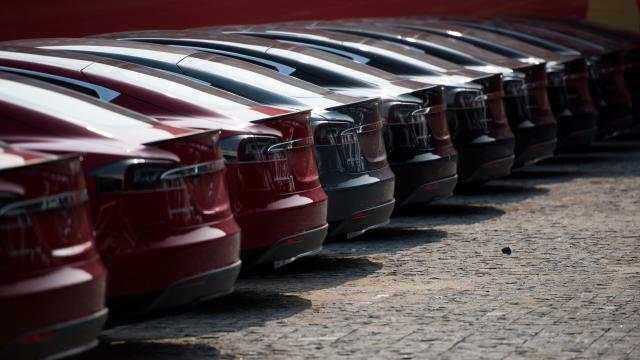On the same day that Tesla CEO Elon Musk told his employees that they needed to increase production “as much as possible” for the remainder of the year, the company purportedly sent out an email informing its employees at its Fremont, California factory that it was shutting down its Model S and Model X production lines for 18 days beginning on Dec. 24. Talk about mixed signals.
According to a CNBC report published Saturday, Tesla offered the employees working those production lines a full week of pay and a few days of paid holiday time. Nonetheless, employees were asked to take five unplanned and unpaid days off, although an email reviewed by the outlet reportedly states that there will be “limited paid opportunities” for workers to support other parts of the factory.
It must be said: We’re living through a pandemic, a time in which millions have had their pay cut or seen their hours reduced. Tesla itself slashed pay for salaried workers in the early months of the pandemic, from April through June, and placed some hourly workers on unpaid leave.
Therefore, it would be understandable, although unfortunate, for production to be affected by the pandemic, if this is truly the case. Tesla, for some reason, didn’t acknowledge the reality of what we’re living through in its announcement to employees, per CNBC. Instead, it said it wanted workers to “take the opportunity” to rest and spend more time with their families.
“We would like you to take the opportunity to refresh or spend time with your family, so Tesla will be giving you a full week pay for the week of Jan. 4th,” the email said, as transcribed by CNBC. “There will also be limited paid opportunities for you to support other shops or volunteer for deliveries during some of this time.”
Say what now? If true, this is a messed up way of explaining a production halt. Gizmodo reached out to Tesla on Sunday to confirm CNBC’s report. We’ll make sure to update this blog if we receive a response. It should be noted that we’re not exactly sure we’ll receive an answer since the company dissolved its PR team in October.
As you all can see from the email, the production halt is not all Tesla mentioned: It also said workers could “volunteer” to deliver vehicles. Now, there’s nothing wrong with offering your workers paid opportunities to deliver vehicles, especially if the factory is facing a demand crunch, but it’s another thing entirely to expect your workers to deliver vehicles without pay. It’s not clear whether these opportunities are paid, and that’s one of the questions we asked Tesla on Sunday.
What makes this production decision even more baffling is that the same day, Musk sent an email to all employees asking them to increase production for the remainder of the quarter as much as possible.
“We are fortunate to have the high class problem of demand being quite a bit higher than production this quarter,” Musk wrote. “To ensure that we have the best possible customer outcome and earn the trust of the customers and investors who have placed their faith and hard-earned money with us, we need to increase production for the remainder of the quarter as much as possible. I would only send this note if it really mattered.”
CNBC speculates that the shutdown of the Model S and Model X production lines suggests that the high demand that Musk refers to does not apply to these cars. It noted a recent roughly 50,000 recall of Model S and Model X cars in China over potentially faulty and unsafe front and rear suspensions in October, as well as the warranty expansion and repair refunds offered for older models of both vehicles that suffered main computer problems in November.
In the end, cars have problems. That’s no secret. We’re living through trying times. That’s no secret, either. Sometimes demand falls for certain cars. Whatever the reason for the production halt may be, it’s better to be upfront about it, or at least not pretend that everything is going well and that workers are going to get to spend more time with their families during the holiday season.
Tesla produced 145,036 cars during the third quarter, 16,992 of which were Model S and Model X vehicles. It produced 128,044 Model 3 and Model Y vehicles.
[CNBC]
